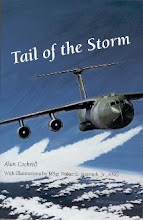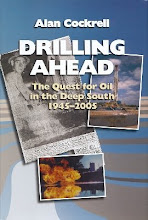Colonel Jim Lilly was our sister squadron’s commander at Korat Air Base. A thin, easy-going and religious gentleman from the South with nearly 300 combat missions under his belt, Col. Lilly seemed a bit out of place among the hell-raisers and snake eaters of the 354th Tactical Fighter Wing. Not that all the wing’s pilots were of that sort. But, from remarks I overheard at the club, some of the guys didn’t respect him. I was not among them.
I knew Col. Lilly only by sight and name until he came up to me one evening at dinner in the club. He said, “Didn’t I see you at chapel service Sunday?” I told him he probably did, as I was there. He invited me to go along with him and a few of his pilots to their weekly dinner visit at an American missionary’s house in nearby Nakhon Ratchasima, which we simply referred to as “Korat City.”
When we
arrived the house was crowded with USAF airmen of all sorts: technicians,
fuelers, cooks—you name it. And a handful of pilots. We all chipped in to
help pay for the groceries and enjoyed home cooking for the first time in
months. The missionary's wife struck up a hymn on her piano and we sang loud. I’m
sure the others felt what I was feeling. We were closer to home than 10,000
miles should allow. Then Col. Lilly got up.
He said
he wanted to tell us a story from years earlier (it was a very long war) when
he was a captain flying ground support missions in South Vietnam. We hushed and
focused in on him as he related a mission that
changed his life.
The flight was diverted on its way home to a firefight in progress between friendly South Viet Nam troops and some Viet Cong. Upon arriving overhead, they were told the VC were holed up in a Christian church that had recently been built near the village. The friendlies were pinned down by fire from within the church and around it. Lilly’s two snakeyes were the perfect weapons to settle the fight in the good guys' favor.
The
other plane being “winchester” (out of ordinance) held high while Lilly
circled. He was a new Christian and he was being told to destroy a church. His
insides churned with anxiety. He circled for a long time trying to decide what
to do, drawing demands from the ground that he attack. Lilly said he prayed
hard, but there didn’t seem to be an answer coming. (Fighter pilot prays in cockpit: Try to wrap your head around that word picture.)
He swallowed
hard and made his decision. He selected “BOMBS MULTIPLE” and moved the arm switch
to ARM. The green lights came on. Abraham was raising his dagger over his son.
He
rolled in and placed the center dot of his reticle (called the "pipper") just short of the church, stabilized his dive
and waited for the pipper to track across its target, almost hoping he would
miss. As the pipper moved across the church, he
pressed his bomb release button, felt the “thump” of the two bombs releasing, and
pulled his Super Sabre hard back toward the sky. As he soared back up he banked the jet and
looked back over his shoulder to see where they hit. Nothing happened.
He
rejoined the other plane. When the BDA (bomb damage assessment) transmission came up from the friendlies, he couldn’t believe his ears. Both bombs were
duds. He dove back down and crossed the church to have a look. There were two
holes in the roof. The bad guys were quite uncomfortable with the two unexploded 500 pounders
resting in their midst and were running away.
Standing there in that living room Col.
Lilly looked around at dozens
of astonished faces. “What,” he asked us, “are the chances of not one, but two
duds on the same drop?” Some of the guys were ordinance men who work with bombs. They were astonished. All our heads shook.
We all
came away astounded by the story. Maybe it was a colossal coincidence; maybe it was a miracle; maybe
Col. Lilly was lying; maybe God really does take sides. I wrestled with those “maybes”
for a long time and finally dismissed them all. Yet I was never able to put
together a checklist for doing the right thing. I finally decided, as Col.
Lilly had done, that you just trust God and do your best. If you think He’s a
myth, then I guess you trust yourself and do your best.
Lt. Col.
Lilly was promoted to full colonel a few weeks later and rotated back to the
States. I never saw him again. But I’ll never forget the story that night of his two dud bombs and how it changed a bunch of GI's ideas on faith and duty.



















